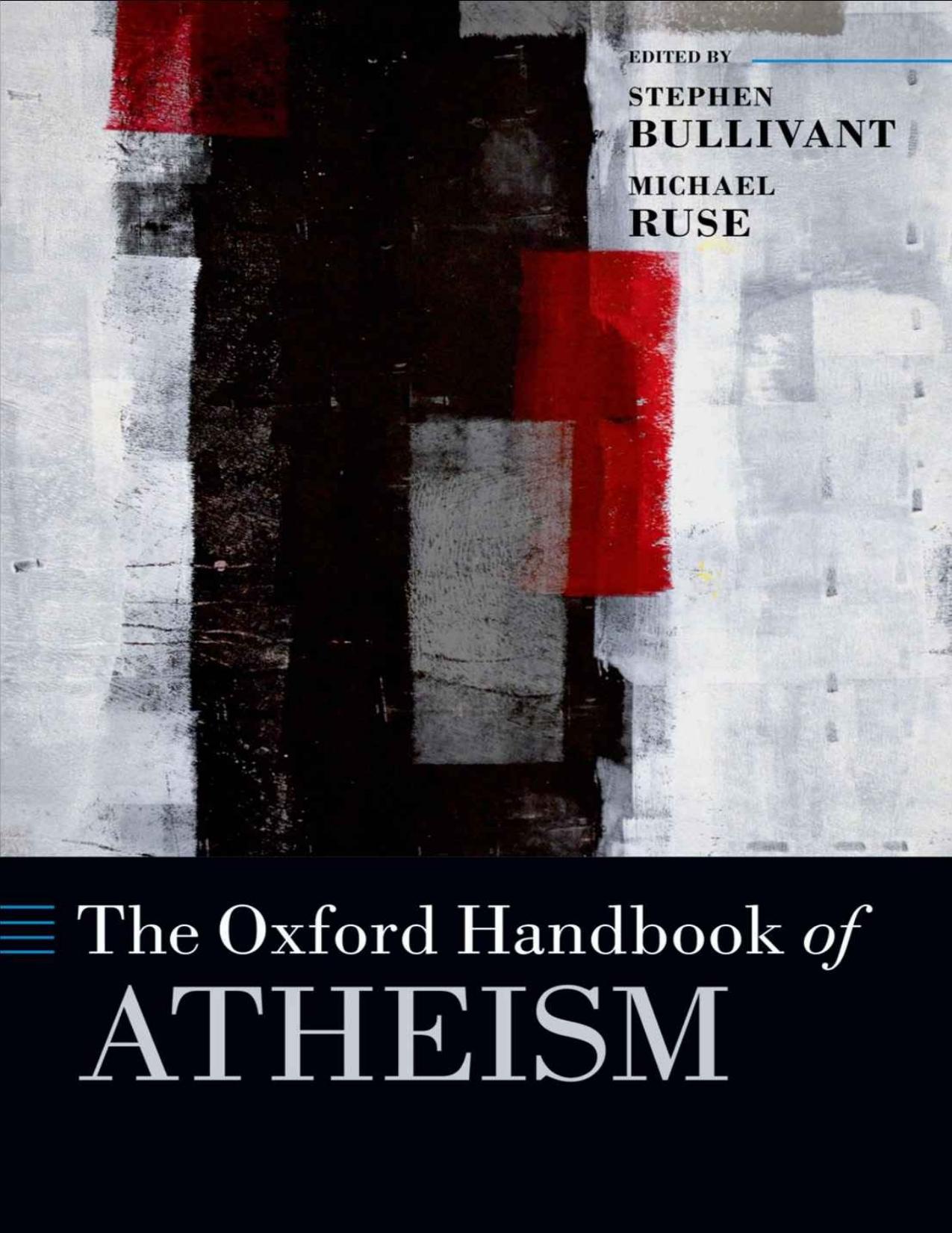The Oxford Handbook of Atheism (Oxford Handbooks in Religion and Theology) by Bullivant Stephen & Ruse Michael

Author:Bullivant, Stephen & Ruse, Michael [Bullivant, Stephen]
Language: eng
Format: epub, pdf
Publisher: Oxford University Press, USA
Published: 2013-11-16T00:00:00+00:00
named text, The Lion who Devours all Truths ( Tattva-Upaplava Sinha), Jayarashi Bhatta thus espouses a sort of metaphysical agnosticism and ethical stoicism that exceeds the materialist emphasis of most
Lokāyatas. Yet he shares their conclusion that theism should be rejected, and that pleasures must be the
sole goal of life. Subsequently the Lokāyatas are described in the Ain i Akbari as being still active in
1578 for a symposium of religions held by the Indian Muslim Emperor Akbar. Here they are,
tellingly, mentioned not as marginal rebels, but as a popular or ‘peasant’ movement (from the literal
translation of Lokāyata as ‘worldly’) proposing a common-sense affirmation of pleasures—a kind of
utilitarianism rather than a rampant hedonism.
NON-THEISM IN CLASSICAL HINDU THOUGHT
Interestingly, if one interprets atheism as rejection of a primary personal creator deity, then an array
of atheist schools can be included within the range of Hindu orthodoxies. As with the pre-Socratics, it
was found that questions about the origins of the universe, its ontological make-up, or the source of
its natural order, could be answered by a range of philosophies. Reality could be explained in terms
of a gnostic duality of matter and spirit (Sā khya), 4 a semantic structure of sound and meaning (Mīmā sā), different constituents of consciousness (Yoga), various kinds of atom (Vaiśe ika),
ontological monism (Advaita Vedānta), or other metaphysical models. Theism was by no means
central in the earliest texts of most of these schools.
The philosophical school of Vedānta had shifted its focus from the individual deities of the Vedic
scriptures to Brahman—described in the Brahma-Sutras as being one, and without distinguishing
characteristics. Like the puruṣa of the Sā khya school, this Brahman had no individual intelligence with which to watch humanity, and no will by which to direct its actions. Thus the narrative which
governs Abrahamic theism—of humanity as created by God and thus intrinsically born into a
relationship of love and or obedience, watched and instructed by the divine, and depending upon its
judgement for salvation—is wholly lacking in a number of the Hindu theologies which grew out of
Vedānta and Sā khya. Importantly, many early schools admitted the existence of gods, while
nevertheless considering them a marginal concern, or a ‘lower ’ route to liberation. For centuries it
was the search for knowledge of reality, and an ameliorative transformation of human life, that drove
early Hindu intellectual culture.
Vigorous scepticism often met theistic attempts to offer too-easy answers to the ‘big questions’ of
cosmology. One of the most famous expressions of doubt speculates on the limitations of theism for
explaining the beginning of the universe:
Then was not non-existent nor existent: there was no realm of air, no sky beyond it.
… Who really knows and who here can say it, whence it was born and whence flows this creation? The Gods are later than this world’s production. Who knows then whence it first came into being? ( g Veda, 10:130)
This late hymn seems to have expressed a growing dissatisfaction with the philosophical viability of
answers derived from the tenets of personal theism, which is seen again in late Vedic texts such as the
Kena Upaniṣad in which the popular personal deities—such as Agni (Fire), Vāyu (wind), and Indra the
warrior god—are depicted as arrogant, confused and ultimately exasperated by Brahman, the then-
new non-personal form of divinity.
The mere personal gods, for all their powers and popularity, were clearly depicted as lower than
the new conception of divinity. Medieval and early-modern Hindu poets also used their open textured
Download
The Oxford Handbook of Atheism (Oxford Handbooks in Religion and Theology) by Bullivant Stephen & Ruse Michael.pdf
This site does not store any files on its server. We only index and link to content provided by other sites. Please contact the content providers to delete copyright contents if any and email us, we'll remove relevant links or contents immediately.
The Lost Art of Listening by Michael P. Nichols(7506)
Why I Am Not A Calvinist by Dr. Peter S. Ruckman(4153)
The Rosicrucians by Christopher McIntosh(3521)
Wicca: a guide for the solitary practitioner by Scott Cunningham(3179)
Signature in the Cell: DNA and the Evidence for Intelligent Design by Stephen C. Meyer(3138)
Real Sex by Lauren F. Winner(3023)
The Holy Spirit by Billy Graham(2953)
To Light a Sacred Flame by Silver RavenWolf(2824)
The End of Faith by Sam Harris(2742)
The Gnostic Gospels by Pagels Elaine(2532)
Waking Up by Sam Harris(2461)
Nine Parts of Desire by Geraldine Brooks(2370)
Jesus by Paul Johnson(2363)
Devil, The by Almond Philip C(2333)
The God delusion by Richard Dawkins(2309)
Heavens on Earth by Michael Shermer(2285)
Kundalini by Gopi Krishna(2185)
Chosen by God by R. C. Sproul(2165)
The Nature of Consciousness by Rupert Spira(2108)
